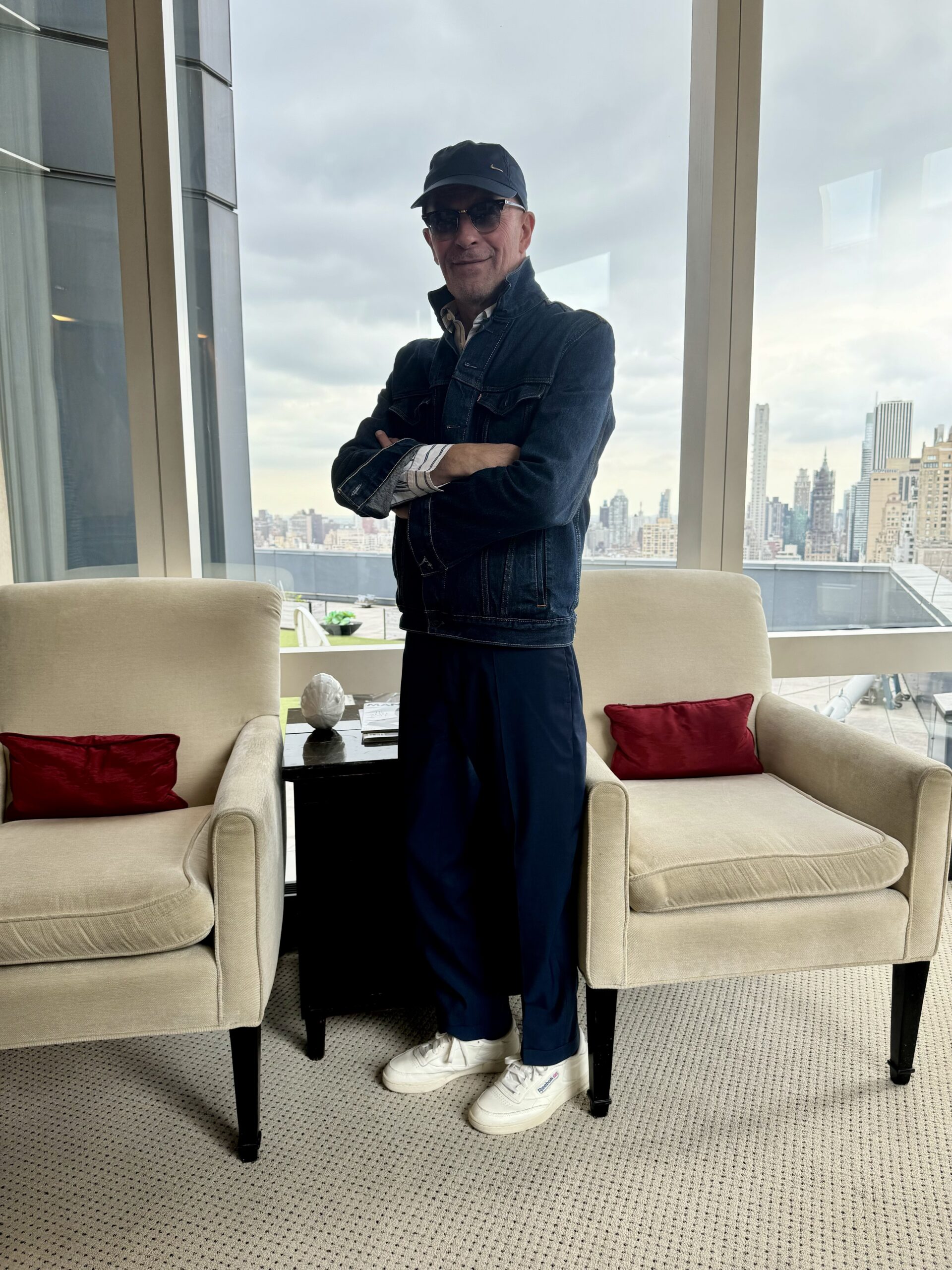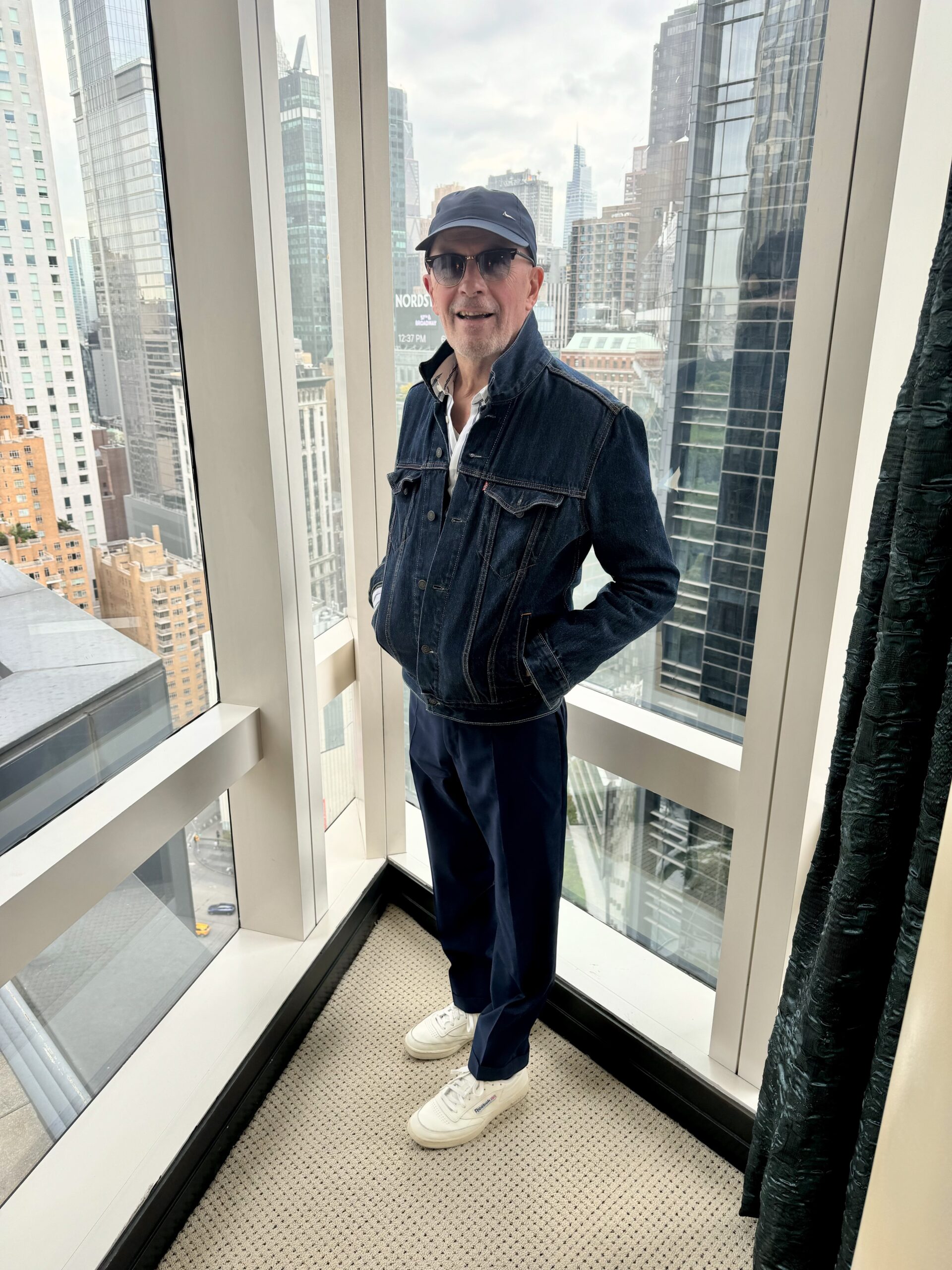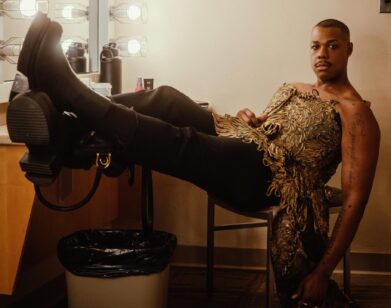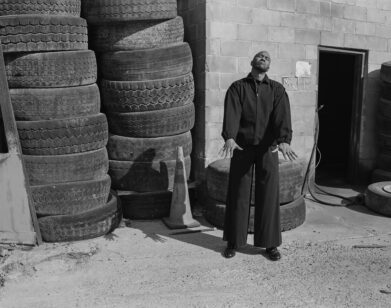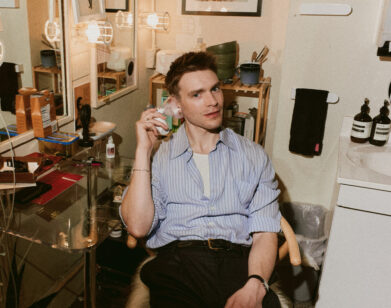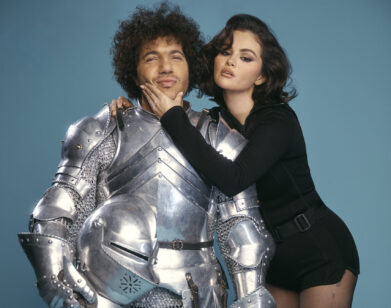NYFF
“I’m Optimistic for the Collective Soul”: 30 Minutes With Filmmaker Jacques Audiard
FRIDAY 12:52 PM OCTOBER 4, 2024 MANDARIN ORIENTAL
When the esteemed French director Jacques Audiard set out to make Emilia Perez, a genre-bending film that’s part-musical, part-crime thriller, and part-tragedy, he kept reminding himself not to shrink in the face of the project’s outsized ambitions. “What matters is not to be afraid,” he says. “Not to be afraid of it being too much, of it being too kitschy or too ridiculous.” Emilia Perez marks not only the 72-year-old director’s first film in Spanish, but also the first time he’s worked with a cast of mostly female actresses, including Selena Gomez, Zoe Saldana, and telenovela star Karla Sofía Gascón, appearing as the titular cartel kingpin who fakes her own death in order to evade law enforcement and receive long-awaited gender-affirming surgery abroad. Sound like fun? Jeremy O. Harris certainly thought so. “You made the movie that’s thrilled me the most this year,” said the playwright when he met Audiard on the top floor of the Mandarin Oriental last week, shortly after the movie’s NYFF premiere.
———
JEREMY O. HARRIS: Jacques, it’s so good to hang out. You made the movie that’s thrilled me the most this year.
JACQUES AUDIARD: You’re too kind.
HARRIS: I think it was this shock. One of the most shocking things is that musicals often feel like confections. I’m a playwright, so I know they aren’t, but you made something that felt like a confection that had hidden inside of it the razor blades of great tragedy. What made you make a movie like this?
AUDIARD: Emilia Perez is a movie that changes all the time. It goes through different forms, different genres. And what matters is not to be afraid—not to be afraid of it being too much, of it being too kitschy or too ridiculous. I’m always afraid. I’m afraid even when I get up in the morning. But here, one should not be afraid. One should not be afraid of calling out people who do evil things. So avoiding fear was what mattered the most. And I think you understood me.
HARRIS: Yes, I did. Recently I saw The Marriage of Figaro, the great opera based on the French novel that inspired the French Revolution, in many ways. This movie has this idea inside of it like, if a person changes, society can change around them. Do you believe that?
AUDIARD: Well, if I were to think that, I’m afraid we would end up with a totalitarian regime, with a personality cult. I am optimistic for the collective soul. I think an individual can make very strong statements, but the collective is a different story. And regarding Emilia Perez, she is delusional because she thinks that she can redeem herself, that she can do good things, but the world around her has not changed. There’s still the same old violence. It will take time.
HARRIS: That’s beautiful. Listening to you, I feel this tension in myself because I took high school French and lived in France for a bit. And my partner’s French, but my French is still a bit childlike. Everything that makes me cool in English doesn’t translate in French. Did you feel that working in Spanish, a chasm between the Jacques Audiard who works in his native tongue and the one working through the filter of a translator?
AUDIARD: Well, I noticed that I regularly like to shoot in other languages. I’ve made three or four films in languages that I don’t speak at all. I shot a Western in English, which is a language I studied in school, but not very successfully. My conclusion is that I like to work basing my choices on the musicality of the dialogue. In my own language, I’m too attached to the language because I’m an academic. I will obsess over punctuation and commas. Whereas if I don’t speak the language, I have the freedom to just focus on the musicality of the language itself. Spanish is a romantic Latin language, so I can understand some parts of it. But Dheepan was a different kind of challenge because the Indians actually have a different physicality, a different way of expressing emotion. So I loved listening to the flow of the music, of the language, and I realized that I just love working when I don’t understand.
HARRIS: I get that. So I was a film critic first, and I’m curious what your own time as a critic has given you as a filmmaker?
AUDIARD: My tenure as a cinephile and a critic took place so long ago, you weren’t even born yet. You have no idea what it was like back then. And what I’m about to say may sound pretentious, but I think I saw every single film in the world that came out in those years. At that time, reading film criticism and going to the cinema were one and the same, and up until the 80s or 90s, film criticism had its place in the cultural discourse before cinema changed. It’s no longer a big, wide-scale collective experience that we all share.
HARRIS: Yeah.
AUDIARD: I’m going to illustrate to you what my cinephile craziness was like. [Opens cell phone] I can’t make these evil things work.
HARRIS: Cell phones are evil.
AUDIARD: Back when I was a teenager, I would make experimental movies on Super 8 and I had completely forgotten about that. Recently I found this program from 1976 for the La Rochelle Festival. I made this seven-minute movie. What I would do is that I would shoot films on TV and then I would play them back much slower. So in Psycho, when they go back to the cellar, it would last 10 minutes in my version.
HARRIS: Wow. I saw this great video of Selena [Gomez] from a talk you did. How did you meet Selena? Were you a fan?
AUDIARD: I was not a fan. I didn’t know anything about Selena and I didn’t know much about Zoe [Saldana] either. I realized that I made a mistake in my casting at first. I had a first version of the script, which is the one that I based the casting on, and in that version the Zoe character was 25 years old and the Emilia character was about 30, which didn’t work out at all. Then when I saw Karla Sofia [Gascón] and I saw Zoe, I immediately realized after getting to know these women that the characters needed to be 10, 15 years older. And regarding Selena in particular, I had seen her in Spring Breakers and then in the Woody Allen movie [A Rainy Day in New York]. But then in person, I met her one morning in New York and I immediately knew that it was her. I don’t even know how to explain it, but I knew it at first sight. She has these characteristics where she comes off as a little girl, but sometimes she seems so much older, and sometimes she comes off like a doll.
HARRIS: I mean, that’s one of the things that’s most stunning about what you did with all your actresses, but especially those two, because I think that people see them in a certain light. And I think that to bring forth the sort of ferocity and explosive nature that exists inside of Zoe is such a special gift. And then also to have Selena, who most of us grew up with, show that she has this deep Marilyn Monroe quality was a testament to your eye and your hand as a director.
AUDIARD: If the movie does nothing else, that’s already an accomplishment. I was very, very happy and very proud of everything that these four actresses did.
HARRIS: Karla Sofia is such an immense presence. My friend who was watching it with me was like, “Wait, so who was the actor that played the character at the beginning?” She’s such a fierce, stunning actress. Your film is just full of gifts.
AUDIARD: It really touches me.
HARRIS: Because I am a cinephile, I want to know what your favorite movie musicals are.
AUDIARD: I’m going to tell you something that may come off as banal, especially coming from a French person, but Les Parapluies de Cherbourg is really what I like the most. And [Chantal Akerman’s] Golden Eighties, Les Chansons d’amour by Christophe Honoré. Or Cabaret, Berlin in the 20s. But to be honest, I don’t have a deep knowledge of musicals as a genre.
HARRIS: Would you ever put Emilia Perez on stage?
AUDIARD: No, there’s just one musical scene that was cut completely and it was something that took place between Epifanía and Emilia right after they meet. But there aren’t very many cut scenes that could make their way back into some material. When you make a film like this, you need to plan everything in advance in great detail because it’s not like you can edit it back any way you want. So I don’t think anything else will come out of this.
HARRIS: But would you ever do Emilia Perez at the Met Opera, for example?
AUDIARD: I would love that, but I won’t be involved. It’s four years of my life that I devoted to Emilia Perez. I’ve had it.
HARRIS: Understood. One of the things that makes this film stand apart from most political musicals is your understanding of choreographic gestures. And for someone who doesn’t come from the world of dance like Fosse did, I’m so curious what allowed your camera to move with such grace.
AUDIARD: Well, I really don’t know. Sometimes I wish I could have an overhead shot so I could see what’s going on, then I could take a look at it and figure it out. It’s the very first time that I made a movie where the protagonists are mostly women, and I took such great pleasure in filming them almost to a guilty level. There are certain shots on Selena where I am overwhelmed. She touches me so deeply, and I just loved filming them. And in Zoe, she was so impressive with the singing and the dancing and the acting all at the same time, I just sometimes can’t believe I’m paid to be there and watch them.
HARRIS: I understand that feeling. I have so many dumb questions to ask you. Like, you are one of the best looking men I’ve spoken to this week. What is your secret to having such a great face?
AUDIARD: If it were a secret, I wouldn’t share it with you.
HARRIS: No, your skin is amazing and I think that people are going to ask you about it. What are you going to do with the rest of your time in New York?
AUDIARD: I leave tomorrow night, so I’m going to walk around town tomorrow. That’s what I did yesterday ‘cause I had the afternoon off. Everything is beautiful. I really want to do nothing else but look around.
HARRIS: I feel like that about Paris. Paris never gets old for me.
AUDIARD: But the Parisians have this bad personality, this bad attitude.
HARRIS: It’s so funny, I’ll often meet that rude waiter or that asshole at the concierge desk, but then I’ll go outside and I’ll see, you know, La Tuileries, and I’m like, “Oh, their grandparents made this.”
AUDIARD: [Laughs]
HARRIS: You’ve done so much. You’ve made multiple films already that could be considered masterpieces, right? And most people could only deign to make one. And the thing that’s interesting is that they’re all in such different genres. You seem to get bored by a genre or an idea and move on to something radically different. Is there some radical scary new mountain you want to climb as a filmmaker that you haven’t gotten to do?
AUDIARD: I don’t have the slightest idea. Normally, I generally have at least one project ahead of me. Sometimes it’s a novel, sometimes it’s a treatment. But now, since Emilia Perez took so long, the movie that I had ahead of it took place. It was Paris, 13th District. So now, I really don’t have anything, but I’m looking.
HARRIS: I love that. You are a truly special man. I don’t want to take any more of your time. I’ve had a blast.
AUDIARD: It was a pleasure.

